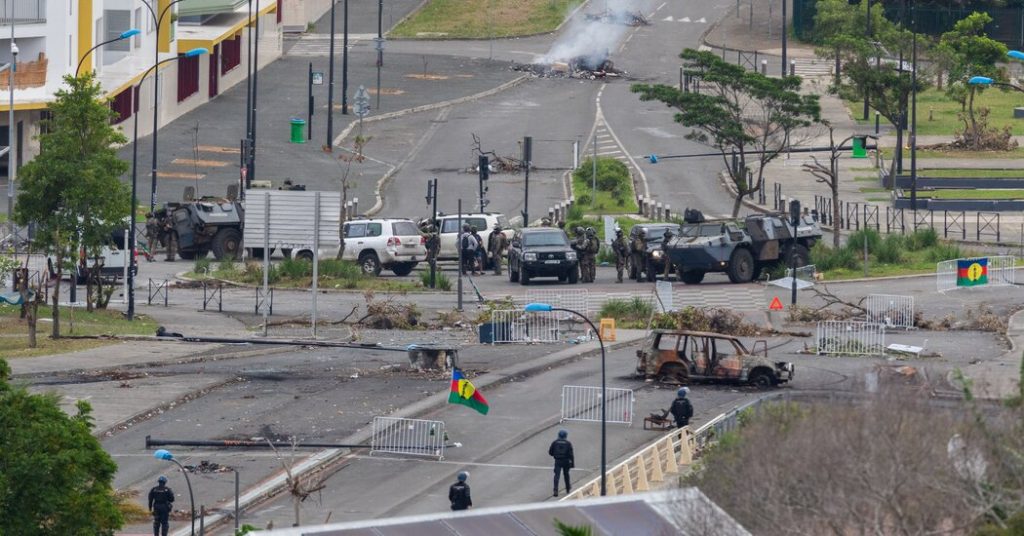President Emmanuel Macron of France is facing a multitude of challenges, from potential losses in the upcoming European elections to preparing for the Olympic Games in Paris. Amidst this chaos, Macron found himself on a plane to New Caledonia, a French territory in the Pacific, which has been experiencing riots and unrest. The riots were sparked by a vote in the French National Assembly to expand voting rights in the territory, a move that many local Indigenous people fear will hinder their path towards independence.
Macron’s trip to New Caledonia is in line with his belief that personal dialogue can resolve any dispute, no matter how heated. However, many in the region view his visit as shortsighted, considering the deep distrust of the government. The unrest in New Caledonia stems from past decisions made by Macron, such as insisting on holding a controversial independence referendum in 2021 despite objections from Indigenous Kanak leaders due to the pandemic. The Kanak leaders called for a boycott of the vote, resulting in a low voter turnout and disputed results.
The discontent in New Caledonia can be traced back to the French colonization of the region in the 19th century, with the intention of turning Indigenous populations into a minority. Tensions between pro-independence and loyalist groups escalated in the 1980s, leading to a peace agreement known as the Matignon accords. This agreement gradually granted political power to the Kanak community and acknowledged their culture and customs. However, the recent vote in Parliament to expand voting rights has reignited tensions, as Kanak leaders see it as a threat to their minority status.
Despite Macron’s assurances and attempts to engage in dialogue, many pro-independence leaders in New Caledonia are reluctant to meet with him, citing a lack of neutrality on his part. The rift between the French government and the Indigenous community in New Caledonia highlights deep-rooted historical grievances and ongoing struggles for independence. In facing this challenge, Macron’s stance on the expansion of voting rights and refusal to consider a new referendum are viewed as irresponsible by many in the region who are fighting for their decolonialization.
The situation in New Caledonia poses a unique set of challenges for Macron, who is used to dealing with social protests in mainland France. The unrest in the territory reflects a deeper struggle for self-determination and autonomy, which the Indigenous Kanak community is not willing to compromise on. As Macron navigates these complexities, the outcome of his visit to New Caledonia remains uncertain, with the potential for further clashes unless a more inclusive and sensitive approach is taken.








